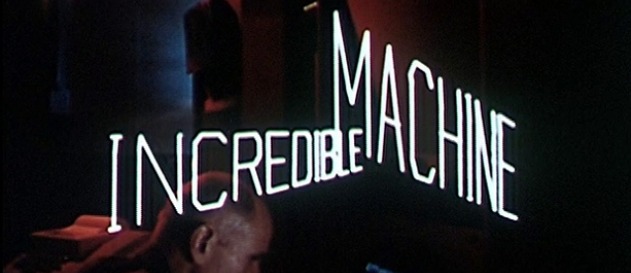
There's a whole strand of science films that can be loosely classified as "industrial" that I'm hoping to explore in this column as it evolves. Industrials are those films made to illustrate the workings of a recent invention or a commercial application for a new technology; in essence, nonfiction instructional pieces made to clearly explain for a viewer how something works. If you've ever seen a documentary that deals with science or technology, you've probably experienced something along these lines, usually appropriated lazily to create an ironic distance between the vast knowledge base the contemporary viewer holds as opposed to those prehistoric fools tinkering away idealistically at giant computers in labs back in the 50s or 60s.
With the launch of DOC NYC, I've had industrial films on my mind this week—they're one of the most obvious ways in which science and cinema have historically intersected, even if many of the results of this mode of nonfiction filmmaking are largely forgotten or wholly devalued.
This week's clip, The Incredible Machine, comes courtesy of a terrific Museum of the Moving Image program that's running this weekend: the Leo Goldsmith and Gregory Zinman curated Computer Age: Early Computer Movies, 1952-1987. (I'll have an interview with the curators up here tomorrow.) The film was produced in 1968 by Bell Labs and directed by Paul Cohen and looks at early experiments in computer graphics, voice synthesis and computer music composition. Its best, most telling moment might come when the Bell scientists teach a computer to deliver a halting and oddly haunting version of Hamlet's soliloquy (the scene makes one wonder if these inventors considered themselves scientists, artists or both), but as someone deeply invested in documentary, I quite enjoyed all the random moments of obviously constructed lab "verite." Most of the Computer Age program focuses more on computer films born of technological developments as opposed to those that explain those same developments, but I appreciate that the programmers have offered viewers the chance to peek behind the curtain for a few minutes.
There's another fairly famous movie from 1968 that looks at all the things computers can do for mankind. This scene (which actually seems to share a lightning scheme with The Incredible Machine) might be familiar to some:
TOPICS